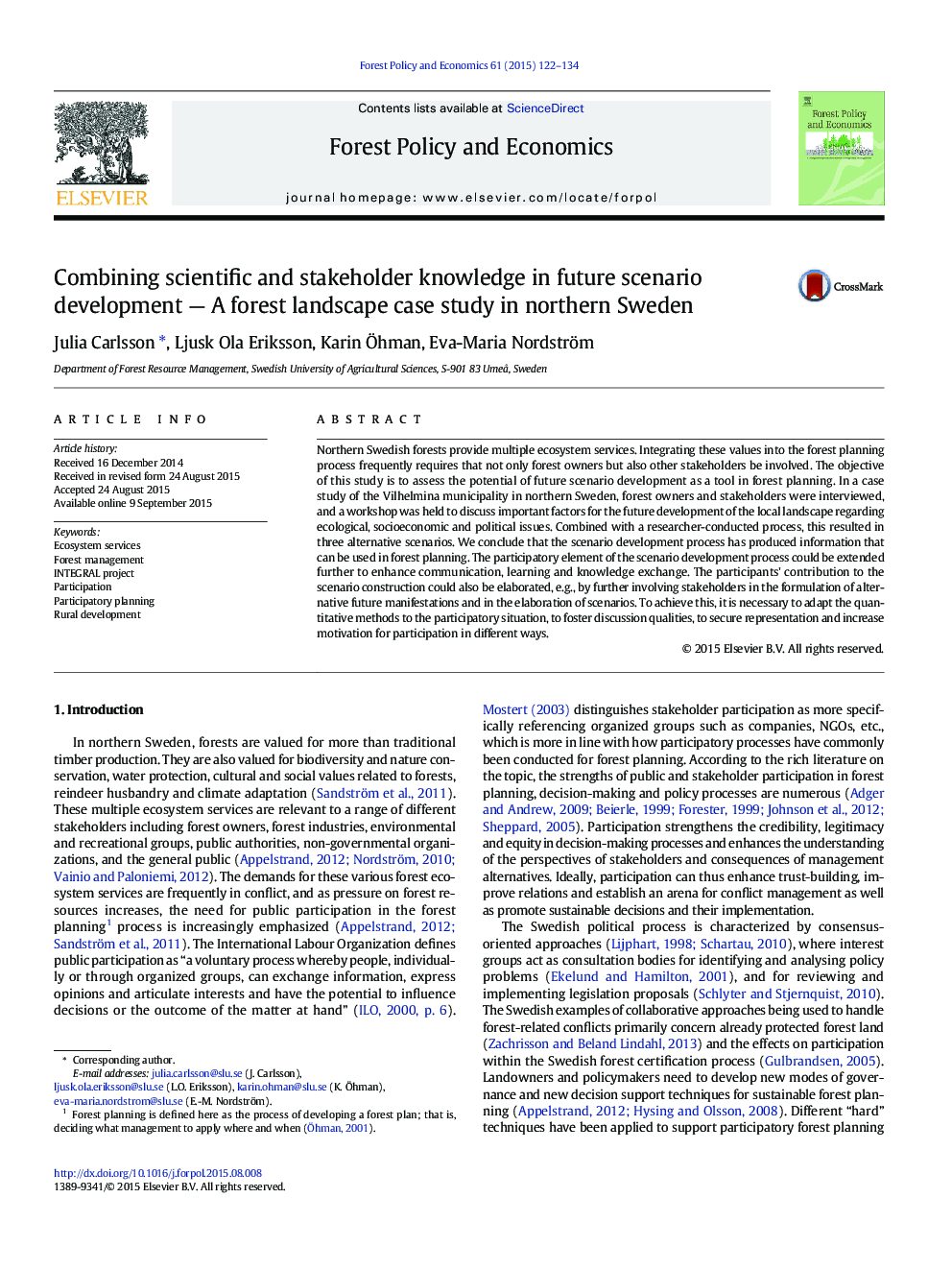| کد مقاله | کد نشریه | سال انتشار | مقاله انگلیسی | نسخه تمام متن |
|---|---|---|---|---|
| 91150 | 159750 | 2015 | 13 صفحه PDF | دانلود رایگان |
• Three scenarios were developed combining stakeholder and scientific knowledge
• Stakeholders contributed to scenario development by discussing key factors of change
• Information from the scenario development process can be used in forest planning
• Participatory qualities need to be enhanced when using advanced scenario methods
• Time for discussion, representation and motivation of participants should be secured
Northern Swedish forests provide multiple ecosystem services. Integrating these values into the forest planning process frequently requires that not only forest owners but also other stakeholders be involved. The objective of this study is to assess the potential of future scenario development as a tool in forest planning. In a case study of the Vilhelmina municipality in northern Sweden, forest owners and stakeholders were interviewed, and a workshop was held to discuss important factors for the future development of the local landscape regarding ecological, socioeconomic and political issues. Combined with a researcher-conducted process, this resulted in three alternative scenarios. We conclude that the scenario development process has produced information that can be used in forest planning. The participatory element of the scenario development process could be extended further to enhance communication, learning and knowledge exchange. The participants' contribution to the scenario construction could also be elaborated, e.g., by further involving stakeholders in the formulation of alternative future manifestations and in the elaboration of scenarios. To achieve this, it is necessary to adapt the quantitative methods to the participatory situation, to foster discussion qualities, to secure representation and increase motivation for participation in different ways.
Journal: Forest Policy and Economics - Volume 61, December 2015, Pages 122–134
